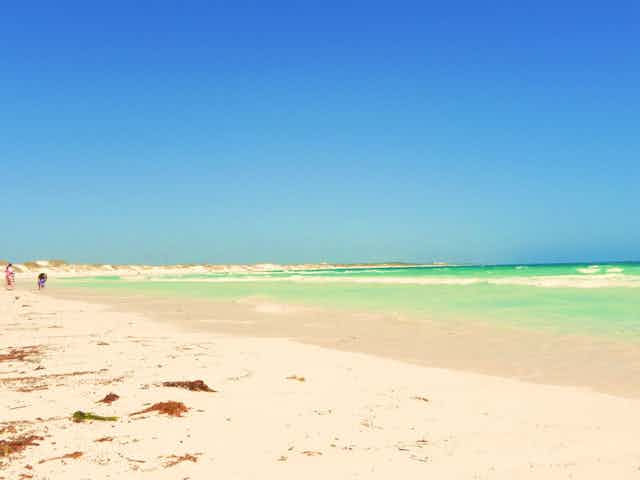Things could not be harder for the beach-goers of Western Australia. Following the worst spate of shark-related fatalities ever recorded, it is summer once again. Shark sightings are up and there is always the risk of another fatal incident and tragedy for the community.
This is a real risk and it is entirely reasonable for officials to take affirmative steps to reduce the chances of a shark bite. Recent funding for a watch tower overlooking Cottlesloe beach is a good example, and the WA Government should be given credit. However, it is because these are serious times, that the government should also end its ridiculous pre-emptive shark hunt strategy.
On Sunday, the policy was in action when an imminent threat to beach-goers was declared and a catch and kill order was issued for dangerous great white sharks.
However, so imminent was the threat that they could not find any great white sharks for two days. So imminent was the hostility from the white sharks, that they ignored two lines set with bait. All the while, the public was out of the water, alerted to the potential risks and the beaches were closed.
Imminent, it appears, is a rather qualified term.
On the one hand it could be said that this time everyone was lucky. This pre-emptive program “to track, catch and, if necessary, destroy sharks”, unique in all the world, works and will help in the future. On the other, it is possible that this exercise runs the risk of distracting the public from real shark bite prevention.
What does that look like exactly?
Options include new education programs for different user-groups in the water, because not all activities carry the same risk. Spear-fishers face higher risks and kayakers could have a training protocol in case they see a shark near them.
Water temperature is also emerging as a good first indicator of risk. New research on great white sharks on both sides of the Indian ocean (Cape Town and WA) suggests that white sharks come into shore much more often between 18ᵒC and 20ᵒC, and less so above 22ᵒC or below 15ᵒC. Checking the water temperature at your beach is a tangible safety step that can be taken.
But rather than talking about research-based methods, we are discussing pre-emptive shark hunts with no scientific evidence that they will prevent shark bites. Simply put, if this program were the Emperor, we would inform him he is wearing no clothes.
A recent case out of Sharm el-Sheikh Egypt highlights my concern. In 2010, there were three non-fatal shark bites in one day and a shark hunt was called. Fishermen went out and two large sharks were caught and killed. The beaches, which had been closed, were re-opened. The next day a shark fatality occurred in the same area. The “success” of the hunt had lulled some into a false sense of security and tragedy followed.
Every story should be taken with a grain of salt and I am clearly highlighting one anecdote over another. But the point is that there are choices when communities approach difficult issues of safety.
An alternative option comes from an island that is also in the Indian ocean and which saw unprecedented fatalities on its beaches in 2012, Reunion Island. Reunion recently developed its shark plan for 2013 by holding a public workshop with input from all sides. I was invited to participate.
Shark hunts were discussed with great emotion. Yet the government left it to the evidence and to the experts to finalise the plan. Shark hunts were not included and with community feedback new initiatives emerged that have never been tried before anywhere in the world. In particular, they took a “disturbance” approach that centred on keeping (bull) sharks at a distance and eliminating the element of surprise, which is a key factor in opportunistic shark bites.
Western Australia is left with an unsatisfactory truth. The risks will continue when people go in the ocean, no matter what the government catches or does not catch. Zero risk does not exist and political programs like the “catch and kill” order can undermine other good work that is taking place, particularly from within the WA Department of Fisheries. The department is overseeing new community engagement programs and innovative scientific research that will benefit every West Australian. These are professionals who, alongside WA Surf Lifesaving, have the impossibly hard job of keeping people safe in the water.
The issue now is a political one. Elected officials want the safest beaches possible, but this is about whether the evidence or the politics should take the lead.

